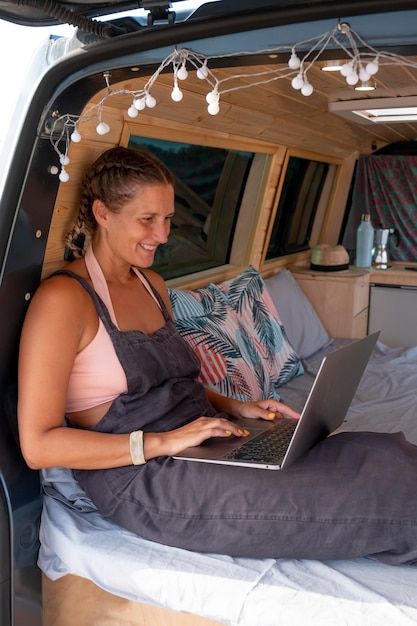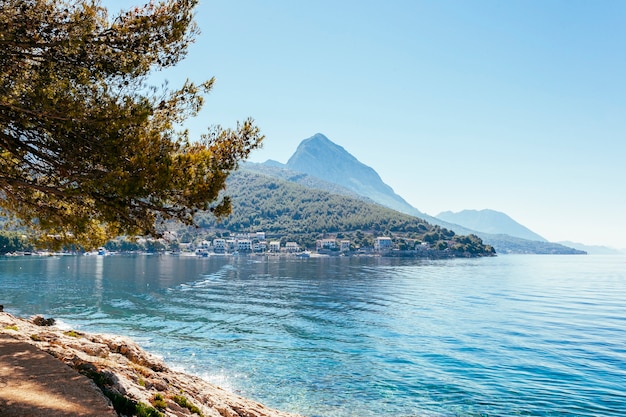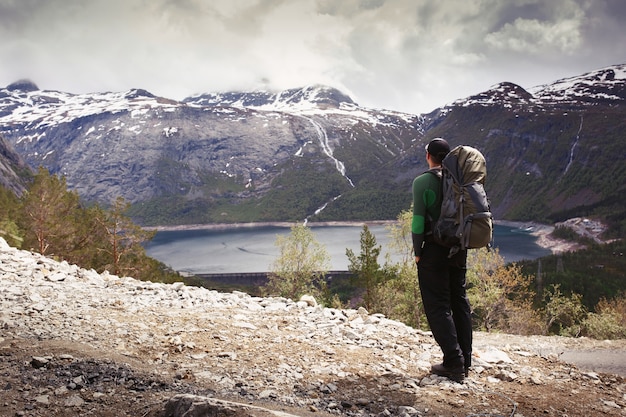
Croatia has become a hotspot for digital nomads, and it’s easy to see why. The country is brimming with stunning scenery, historical richness, and warm hospitality. I had an amazing time in Croatia, and I’m eager to share some tips to help make your experience just as wonderful.
Living in Croatia feels laid-back and vibrant. The locals are friendly, and there’s so much to explore, from the historical sites to the beautiful islands. The introduction of the digital nomad visa has certainly made it easier for remote workers to stay longer.
Croatia is nestled in the Balkans, bordered by Serbia, Bosnia & Herzegovina, Hungary, Slovenia, and Montenegro. It’s easy to travel around, and within the country itself, there’s no shortage of experiences. The low cost of living and the digital nomad visa are huge draws for remote workers.
Croatia gained its independence in 1991 and has since flourished in culture and tourism. Every region offers something unique, from the relaxed islands to the bustling capital, Zagreb. The country adopted the Euro in January 2023 and joined the Schengen zone, while still maintaining its distinct charm.
Living in Croatia as a digital nomad is an enriching experience, made simpler by the digital nomad visa. Traditional employment can be challenging for foreign citizens, making remote work a popular choice. The co-working scene is growing, with excellent cafes and plenty of internet connectivity.
Meeting people in Croatia is easy, whether you’re in digital nomad hotspots like Zagreb, Split, and Dubrovnik, or opting to stay in hostels where you’ll inevitably bond with like-minded travelers. Although language barriers exist, especially in rural areas, many Croatians speak some English, making communication manageable with a bit of effort.
Croatia is generally safe, with different vibes between the cities and the islands. Basic safety measures are recommended to avoid problems, but issues like pickpocketing are rare and mostly confined to larger cities.
Choosing the right base is crucial. Zagreb, the vibrant capital, offers plenty of co-working spaces and a mix of old and new. It has a bustling nightlife and numerous accommodation options, with reliable WiFi and an array of cafes perfect for work.
Dubrovnik, known for its summer crowds and historical sites, is great for digital nomads outside peak tourist months. The city offers good internet and many work-friendly cafes. Accommodation is pricier in summer, but quieter areas like Ploče and Lapad offer more reasonable options.
Split, with its lively vibe, beautiful beaches, and rich history, is another great spot. It offers diverse co-working spaces and a relaxed lifestyle, with many affordable and well-connected neighborhoods.
Zadar, smaller but equally charming, blends tourism with local life. The Old Town is a bit pricier but central, while areas like Borik and Diklo offer quieter, more affordable living. Zadar’s growing digital nomad scene makes it easier to find reliable internet and co-living options.
Hvar, an island known for its vibrant nightlife and peaceful retreats, is also an excellent choice for digital nomads. While the WiFi could improve, using your phone as a hotspot works well. Hvar Town is lively, but areas like Jesla offer more tranquility and affordable accommodation.
Finding accommodation in Croatia is manageable; options include Airbnbs, Booking.com, co-living spaces, and even Facebook groups dedicated to digital nomads. Living costs are relatively low, with the biggest expense being accommodation, especially in tourist areas during the high season. However, the cost of groceries and eating at home is quite affordable.
Public transport can be a bit frustrating due to its unreliability, but ferries are consistently good. Buses are inexpensive, while taxis and Ubers are pricey but recommended for safety at night.
For internet connectivity, getting a local SIM card is straightforward and recommended. T-Mobile, Telemach, A1, and Tomato offer good coverage. Alternatively, eSIMs are a solid choice for data needs.
To save money, consider using co-working spaces selectively, capitalizing on free WiFi in cafes or at your accommodation. Croatia’s average WiFi speed is decent, although the experience can vary.
Croatia offers countless activities and hidden gems. Rovinj, with its outdoor activities and local produce, Paklenica National Park with its dramatic landscapes, and Pula Arena’s historical significance are all worth visiting. Diving spots like Lokrum Island and Mali Lošinj offer breathtaking underwater scenes.
The climate in Croatia is mostly Mediterranean, with hot summers and mild winters. Zagreb can get quite cold in winter, often seeing snow, while coastal regions remain milder.
There are plenty of advantages to being a digital nomad in Croatia, including beautiful scenery, friendly locals, and a growing community of remote workers. However, the country’s public transport could be better, and WiFi connectivity isn’t the fastest, especially on the islands.
The digital nomad visa, introduced in 2021, simplifies long-term stays for remote workers, allowing them to live in Croatia for up to a year. Applicants need to show proof of employment and financial stability, along with an address in Croatia.
Croatia’s unique charm, friendly atmosphere, and growing digital nomad community make it an exciting place to live and work. With beautiful landscapes, rich history, and delicious cuisine, it offers an unforgettable experience for digital nomads.




